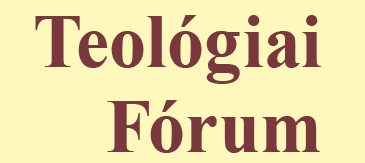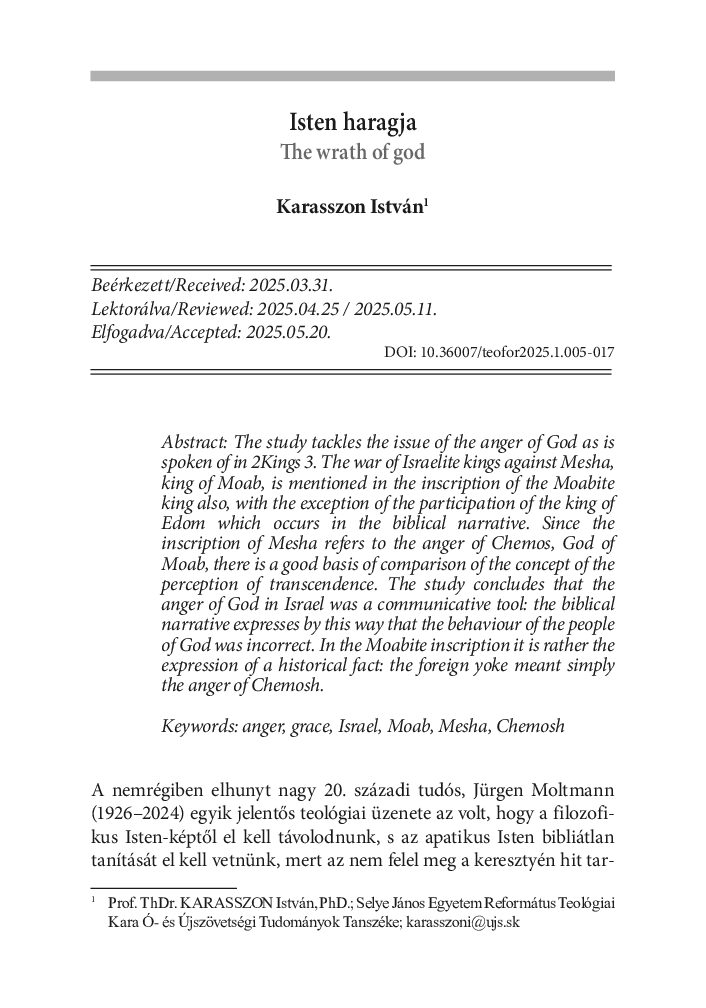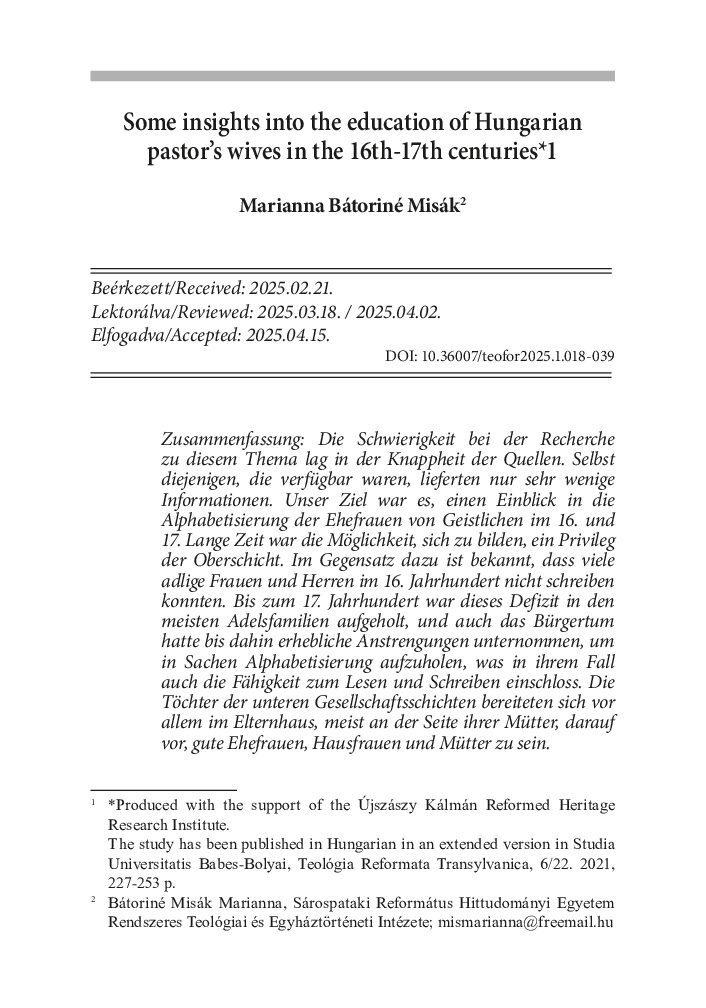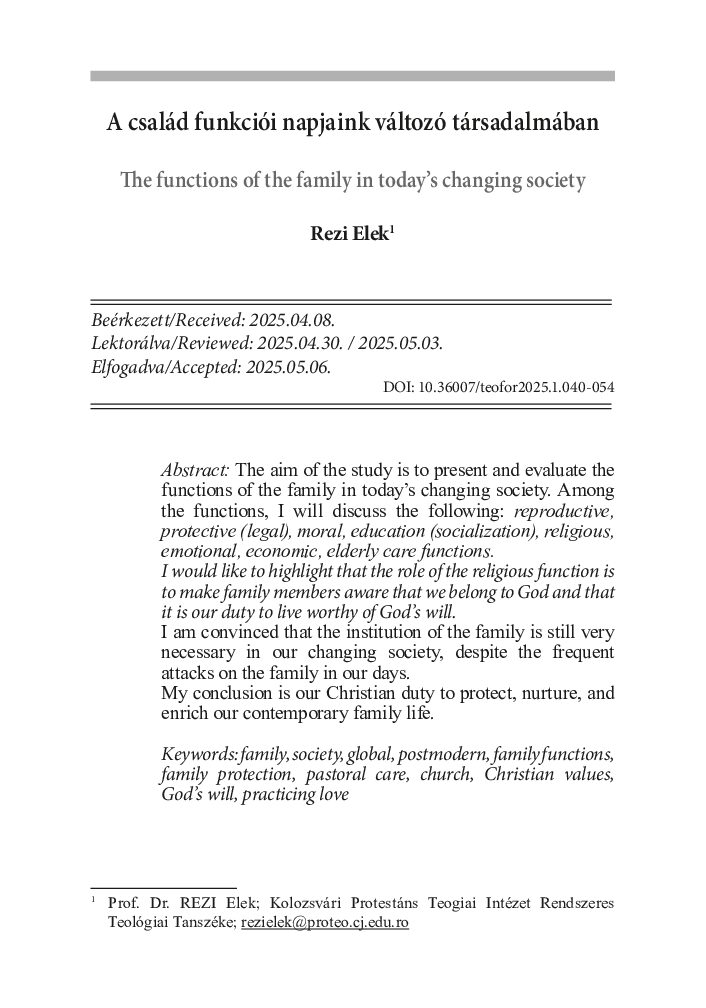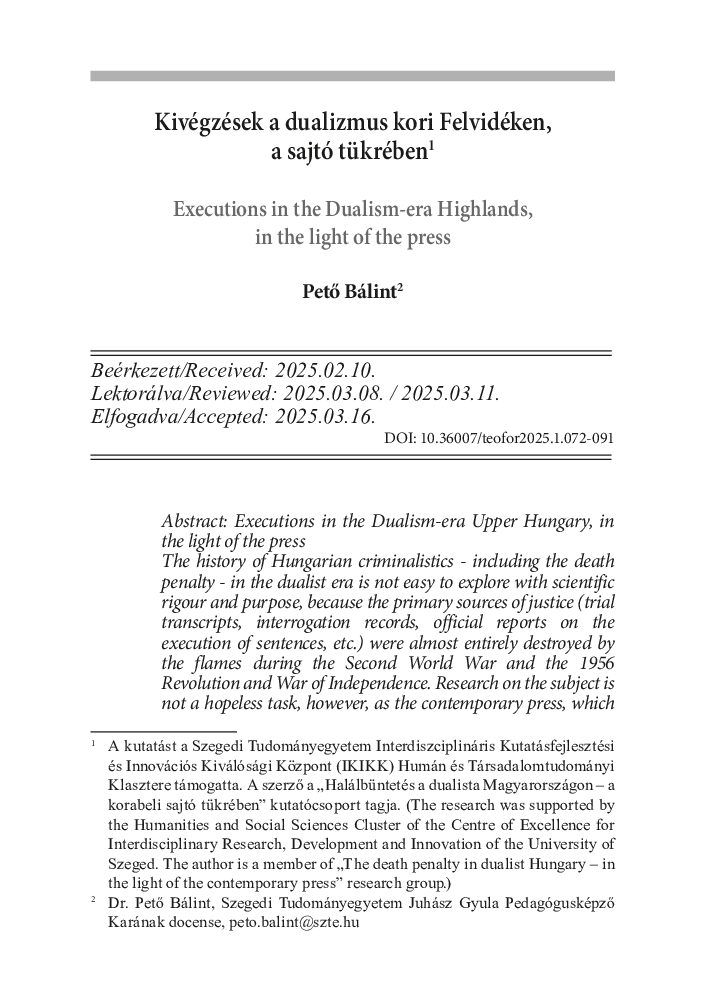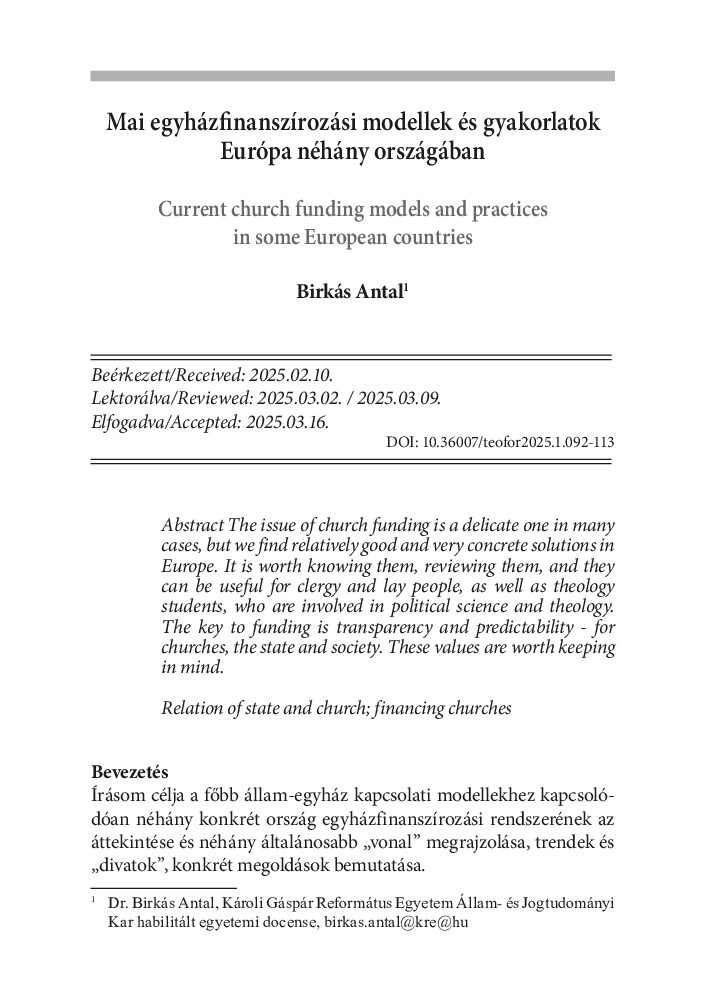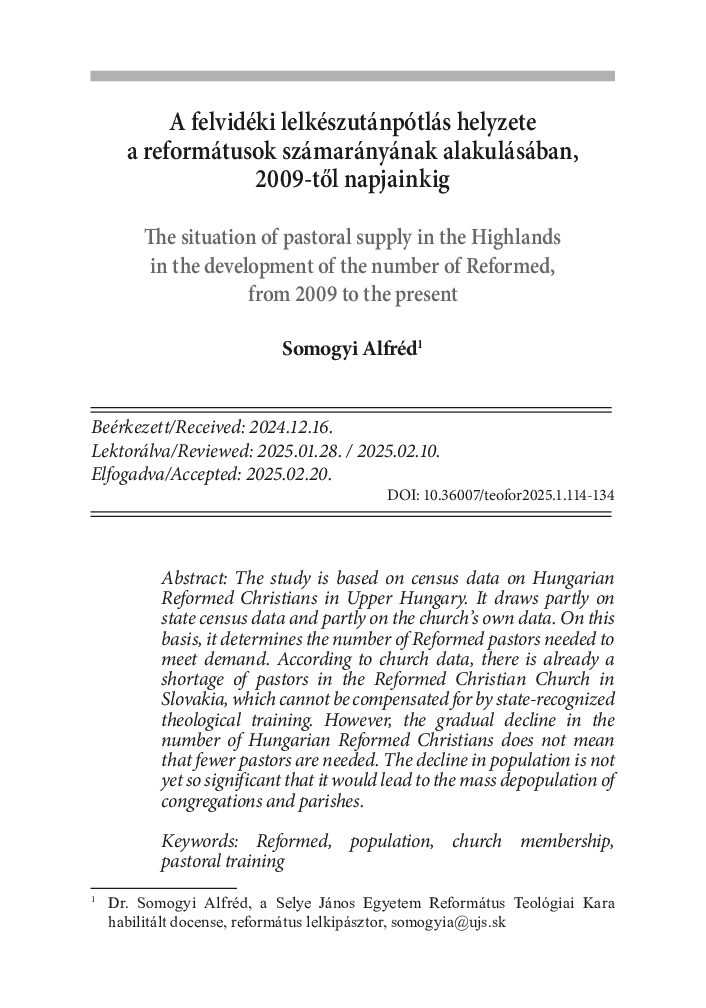This study examines the intellectual and ecclesiastical significance of the early twentieth-century peregrinations of Reformed theologians from Cluj Napoca (Kolozsvár) to the Faculty of Theology at the University of Berlin. Drawing on contemporary reports, autobiographical accounts, and theological writings, the article reconstructs the formative influence of Berlin’s theological, philosophical, and social environment on figures such as György Bartók Jr., László Ravasz, Géza Nagy, Sándor Tavaszy, Lajos Gönczy, and Benedek Kovács. Their encounters with the liberal theology of Adolf von Harnack, the homiletical and missional emphases of Eduard von der Goltz and others, as well as the practical orientation of Berlin’s seminar culture, sharpened their critical reflections on the limitations of purely theoretical theological training in Transylvania. In addition, their observations on the social mission of the Protestant church—particularly in relation to urban poverty, diaconal service, and the tensions between secularization and ecclesial identity—proved decisive for later reforms in Hungarian Reformed theological education. By situating these intellectual exchanges within the broader currents of German idealism, historicist theology, and the challenges of modernity, the study demonstrates how the peregrinatio academica in Berlin reshaped both the pedagogical structures and the ecclesial consciousness of the Cluj Napoca (Kolozsvár) Faculty of Reformed Theology.
Keywords: peregrinatio academica, Berlin University, Reformed theology, Cluj Napoca (Kolozsvár), liberal theology, theological education, Adolf von Harnack, practical theology, secularization, diaconal mission.
